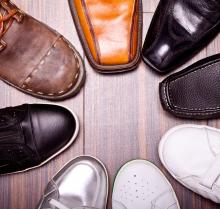'If Buddhism helps them, so be it, but maybe they just need to be better Christians or better Jews.'
Columns
Within the next 20 years, we'll see the evolving convergence of humans and machines.
I was either having a major cardiac event or was standing in a pool of water being repeatedly struck by lightning.
Grameen Bank operates beyond the bottom line to benefit those at the bottom of the line.
President-elect George W. Bush, as a victor who lost the popular vote and won the presidency with a 5-4 Supreme Court decision, will face a divided nation
Because our oldest daughter absolutely refuses to join the Merchant Marines after high school, she made me drive through New England this summer looking at prospective colleges.
Let the good times roll! President Bill Clinton was absolutely beaming as he reported the U.S. Census Bureau's annual poverty statistics.

A straight-shooting white friend once commented that whenever blacks and whites are together it's like there's a "big pile of poop in the middle of the room..."
Interstate 77 winds around the mountains of Bland County like lifelines on the palm of my hand. I cross through the Big Walker Mountain tunnel and know I am home.
My former college, one of the nation’s top-ranked schools, is considering banishing a highly respected national Christian group from campus for discriminatory practices.
Josh and I made some important decisions on the day that we got engaged. First, we decided to retain our sanity amidst the barrage of impending wedding chaos.
In just a few short months you'll wake up on a crisp Tuesday after the first Monday in November and do your part to dramatically affect the course of history.